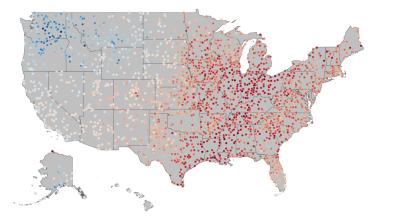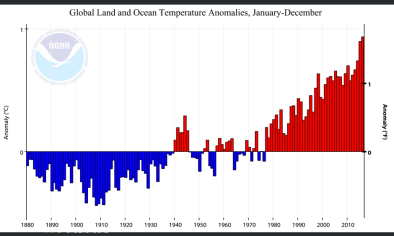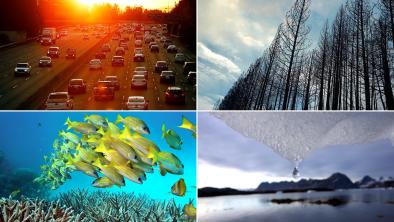Science Source
Changes in Ecologically Critical Terrestrial Climate Conditions
- States that terrestrial ecosystems have encountered substantial warming over the past century, with temperatures increasing about twice as rapidly over land as over the oceans
- Reviews the likelihood of continued changes in terrestrial climate, including analyses of the Coupled Model Intercomparison Project global climate model ensemble
- Finds that inertia toward continued emissions creates potential 21st-century global warming that is comparable in magnitude to that of the largest global changes in the past 65 million years but is orders of magnitude more rapid
- Finds that the rate of warming implies a velocity of climate change and required range shifts of up to several kilometers per year, raising the prospect of daunting challenges for ecosystems, especially in the context of extensive land use and degradation, changes in frequency and severity of extreme events, and interactions with other stresses
Related Content
Science Source
| World Meteorological Organization (WMO)
WMO Statement on the State of the Global Climate in 2016
Real Time Data

Mar 15, 2017 | Global Historical Climatology Network–Daily (GHCN-D)
US Annual Average Temp as Departure from Normal
Headline

Jan 19, 2017 | Category 6
Confirmed: 2016 the Warmest Year in History of Global Recordkeeping
Headline

Jan 19, 2017 | Los Angeles Times
Wildfires, sea level rise, coral bleaching: Climate change is already here


